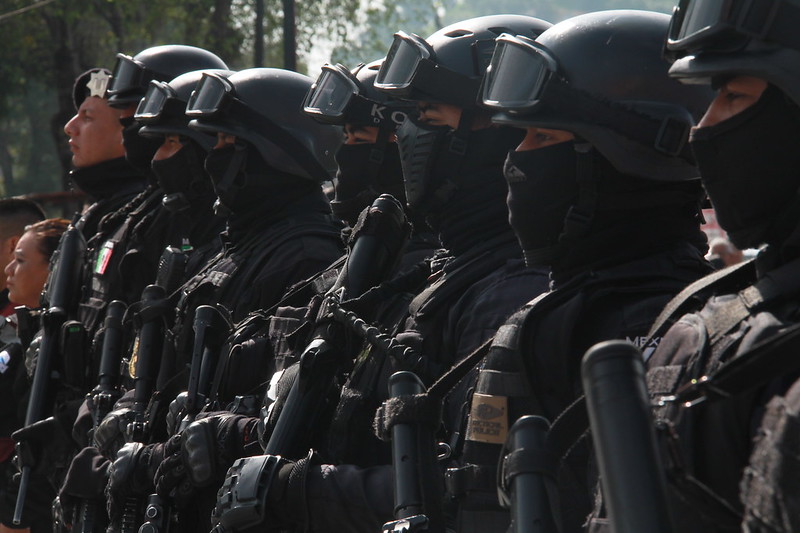One of the problems plaguing Mexican history is its relationship with corruption and the perception that comes with it, which is already part of Mexico’s political culture. Its police force stands at the forefront. In recent years, police forces have undergone several reforms in an attempt at structural improvement. In order to understand these changes, it is necessary to clarify a few points about the Mexican police.
First of all, we should recognize that it is a complex, decentralized, and multi-level institution, aligning with Mexico’s federalist system. Broadly speaking, there are three levels of police in Mexico:
- Municipal Police: with jurisdiction in the municipality and in charge of situational prevention of common crimes and support for neighborhood level issues such as fights or family violence.
- State Police: with jurisdiction in the state. They have greater investigative authority than the municipal police and more power to react to crimes.
- Federal Police: with jurisdiction over the entire country. They deal with crimes that threaten the country as a whole such as drug trafficking or terrorism and require more extensive operational capacity.
The police are divided as such to create differentiated capabilities to deal with different social problems. This article focuses on federal police reform measures which are linked to national issues.
From Federal Police to the National Guard
Faced with the growth of drug trafficking in Mexico, the Federal Police faced intense scrutiny, so much so that they became seen as insufficient to safeguard order in Mexico. This led to the army increasingly taking over public security tasks. Since 2006, this process has accelerated.
The perception of the police as corrupt, and the military as less prone to such corruption sparked a 2018 reform measure essentially dissolving the federal police and replacing them with a semi-militarized body called the “National Guard,” tasked with ending “systematic police corruption.”
The National Guard’s command has since become very controversial, as they are not trained as law enforcement officers. Likewise, they were marketed to the public as a civilian-led body, yet the military were always in charge.
Alternatives to Police Reform
It is worth reflecting on this premise, since there is evidence linking the militarization of public security in Mexico to increases in violence and human rights violations, not to mention that it has yet to accomplish its goal of eliminating institutional corruption.
Two alternatives to the current model for police reform in Mexico include:
1. Returning Public Security to the Civilian Sphere
The military has had its hands in public security since 2006, and the results have been questionable. This has been a trend from prior government administrations up to the current one. Thus, one alternative is a reform measure supporting and promoting civilian commanders and professionalizing the police, courts, and tribunals, in order to address the issue from a non-military and non-internal security perspective.
2. Strengthening the Municipal Level
In Mexico, municipal police have been virtually abandoned to the detriment of the federal and military order. There are some cases in Mexico that serve as evidence that retaking and reinforcing the local civilian sphere can give better results, favoring local police over federal approaches.
These are just a few of the many changes needed in Mexico that illustrate some alternative approaches focused on empowering Mexican civil society.
In conclusion, it is worth mentioning that the problem of police corruption is structural and multi-causal. Neglect at the local level and militarization at the federal level has thus far proven to be a recipe for disaster. We urgently must open the debate on this problem in Mexico.
Main image by Gobierno Cholula via Flickr– Creative Commons license (CC BY-SA 2.0).

